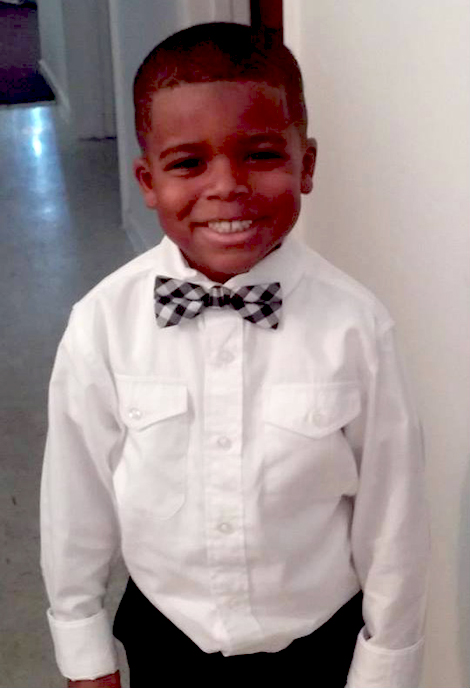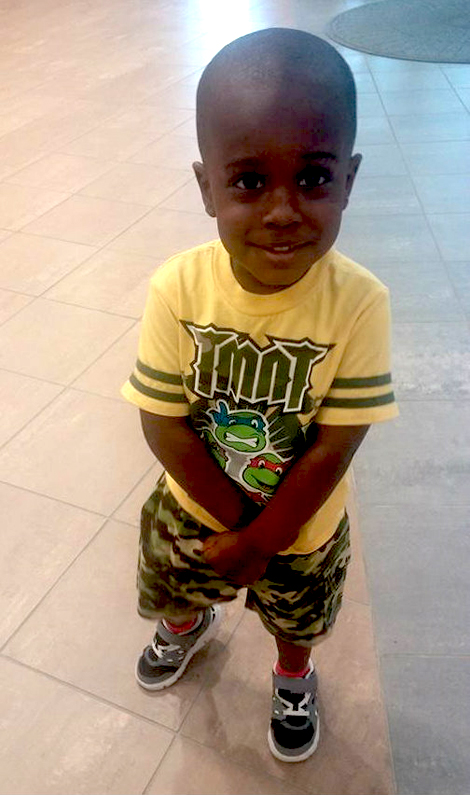Black families fight entrenched prejudices to get fair discipline for their children in schools.
JJ was 4 at the time.
I agreed his behavior was inappropriate, but I was shocked that it resulted in a suspension.
For weeks, it seemed as if JJ was on the chopping block. He was suspended two more times, once for throwing another chair and then for spitting on a student who was bothering him at breakfast. Again, these are behaviors I found inappropriate, but I did not agree with suspension.
Still, I kept quiet. I knew my history. I was the bad preschooler.
I was expelled from preschool and went on to serve more suspensions than I can remember. But I do remember my teachers’ disparaging words. I remember being told I was bad and believing it. I remember just how long it took me to believe anything else about myself.
So I punished JJ at home and ignored my concerns. Then, two months later, I was called to pick up my 3-year-old son, Joah. Joah had hit a staff member on the arm. After that incident, they deemed him a “danger to the staff.” Joah was suspended a total of five times. In 2014, my children have received eight suspensions.
Just like before, I tried to find excuses. I looked at myself. What was I doing wrong? My children are living a comfortable life. My husband is an amazing father to JJ and Joah. At home, they have given us very few problems; the same goes for time with babysitters.
I blamed myself, my past. And I would have continued to blame myself had I not taken the boys to a birthday party for one of JJ’s classmates. At the party, the mothers congregated to talk about everyday parenting things, including preschool. As we talked, I admitted that JJ had been suspended three times. All of the mothers were shocked at the news.
“JJ?” one mother asked.
“My son threw something at a kid on purpose and the kid had to be rushed to the hospital,” another parent said. “All I got was a phone call.”
One after another, white mothers confessed the trouble their children had gotten into. Some of the behavior was similar to JJ’s; some was much worse.
After that party, I read a study reflecting everything I was living.
Black children represent 18 percent of preschool enrollment but make up 48 percent of preschool children receiving more than one out-of-school suspension, according to the study released by the Education Department’s Office for Civil Rights in March.
I immediately thought back to my own childhood. I thought back to the humiliating labels that greeted me before I could read. I thought back to the number of black friends and family members who also were suspended and expelled. I thought about my family and friends who had not overcome the detrimental effects of being suspended in preschool. I did not want that for JJ and Joah. I did not want it for any child.
But the next step was the hardest. At news of all of this, friends and relatives suggested that I pull my children out of the preschool program and move them into another. At first, I considered that. That move may have changed my kids’ circumstances, but it would not have solved the problem. All across this country, black children are being suspended in preschool.
We can no longer put a Band-Aid on our nation’s preschool-to-prison pipeline, which pushes children out of the education system and criminalizes relatively minor offenses. Moving my boys to another school would have provided a stopgap solution. It may have solved my problem, but it would not have solved the problem.
The problem is not that we have a bunch of racist teachers and administrators. I believe most educators want to help all children. But many aren’t aware of the biases and prejudices that they, like all of us, harbor, and our current system offers very little diversity training to preschool staff.
A recent study published by the Journal of Personality and Social Psychology found that the subjects — mostly white, female undergraduates — viewed black boys as older and less innocent than their white peers. When photos of children were paired with descriptions of crimes, the subjects judged the black children to be more culpable for their actions than their white or Latino counterparts and estimated that they were an average of 4.5 years older than they actually were.
Authority figures strip black boys of their innocence at younger ages than white children. Diversity training for teachers and administrators would raise their awareness of how subconscious prejudices can drive racial discrepancies in disciplinary action.
I know that I am only one person and that it will be difficult for me to change the system. But I will do my part at my kids’ preschool. I joined the parent advisory board and intend to work with it until I see change. I encourage other parents to join parent boards and attend school meetings that are open to parents. This is not the time to be silent. We must speak out. I cannot go back and undo what was done to me, but I refuse to let it be done to my children.
Tunette Powell is a motivational speaker and author. She is co-founder of The Truth Heals, a nonprofit for individuals and families affected by fatherlessness. | Follow Tunette on Twitter at @TunettePowell
This piece was reprinted by EmpathyEducates with permission or license. We thank the Author, Tunette Powell for her kindness, for sharing her story, for the research and for a look at the reality that is our system. We are grateful and consider this an invitation to discuss what is vital.













Thank you for this post. I am very heartened to hear about your constructive approach to this issue. I would love it if you would continue to post about what approaches you have taken, what has worked and what has not — in your efforts to change the problem.
While I abhor the idea of the school to prison pipeline and have fought against it, I have to point out the phrase”between a rock and a hard place” is the conundrum if no consequences came of the ‘simple assault’ attempt by way of throwing a chair.
Sometimes we have to remind parents that behaviors like that do not show up at home…..but we are in the place where children think “You not my mommie” and try some of the ugliest things. Especially these days.
You should be trying to find out how to handle the problem of throwing chairs, not blaming those who could have been victims. You would not want your child to be hit by a chair and would want the child who did it suspended if the tables were turned. The other things, you may be right but I am sorry I can’t support the chair throwing. I can even accept hitting because “skin to skin” hitting is harmless and normal. Chair throwing tantrums is something else.
Principaltruths–sorry, but the time in which to apply meaningful consequences for a three-year-old are long passed by the time a parent has been notified and the suspension laid in place. Chair-throwing seems to be common enough that it is always been thrown up in discussions of classroom discipline (as in, “oh, yeah, well what do you want us to do when someone throws a chair?” I do believe that the key to answering that kind of question meaningfully is to ask what happened before the chair-throwing occurred. Example considerations–did someone just willfully destroy the kid’s artwork? Was the room in chaos for some other reason? Is there some unresolved issue that has been causing the kid a great deal of frustration? Does this fit with a pattern of response by this kid, or was this some isolated perfect storm? Now, I don’t want to give the impression of justifying inappropriate behavior. But I also know that as adults we frequently structure things in such a way as to feed misbehavior, or fail to intervene early enough, and as a result find ourselves overwhelmed by the level of inappropriate responses. And in such circumstances even the best-brought-up kids with good home lives tend not to be on their best. And yet, we expect that somehow by calling in mom (and frequently punishing her by withdrawing the child-care service for a time through suspension) she can take the worst offender home and render him or her immune to the situation (ie: teach them to NEVER, under any circumstances to EVER throw a chair).
Your thoughtful comment is appreciated. So many elements go into what happens in a classroom. For me the situation is an opportunity to learn and to share with the students and adults involved. Suspension teaches little except that some people do not belong… a lesson I do not care to perpetuate.
Just to let you know, when I was 4 years old, my mother sent me to Jack & Jill Nursery School. I hated it. I intentionally took my milk and spilt on the table right in front of the teacher. I also pushed a chair over. They never suspended me but I was a ‘nursery school’ drop out. I refused to go back. My grandmother said I could stay with her. There were no real repercussions, other than my mother being super embarrassed, she thinks that my grandmother wanted to keep me with her, . I am a white and this happened in 1968. I was not usually a bratty kid but for some reason I did not like them (don’t remember why). Kids at 4 do things that are inappropriate at times and your son (and yourself) were mistreated. I am sorry for you. Little kids need to be corrected at times but they never should be told that they’re bad. And; just some food for thought maybe your little boy didn’t like something going on there and he couldn’t articulate it. I think that’s what happened to me, except for life of me I cannot remember exactly what that was.
PS I am pretty much done with adults that hold Black boys to higher code of conduct than they do for other children in their age-group. As a teacher, I have observed it a myriad of times. And; I do speak out when I see it.